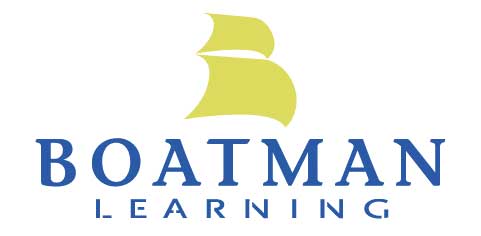How’s this for a Mission Statement? Specialized Sales Systems exists to help companies build their own specialized sales systems that drive revenue growth. Breakthroughs in technology and process make this process better and cheaper than traditional sales training.
It sounds clear to us, but as Matt McDarby and I began sharing our message with the market, we quickly learned: When you’re introducing innovation into a profession (like selling), a certain amount of term definition is required. So to be clear about the opportunity sales leaders have today, here are answers to the questions we’ve encountered from partners and clients:
What do you mean, “Specialized”?
Let’s go right to Merriam-Webster, a professionally- curated resource I trust:
Specialized: 1: characterized by or exhibiting biological specialization; especially : highly differentiated especially in a particular direction or for a particular end, 2: designed, trained, or fitted for one particular purpose or occupation (Specialized personnel)
We take this part of the definition VERY literally. Let’s unpack it for the world of sales force development.
Specialized sales development is “highly differentiated” in that it’s “biologically” engineered to help salespeople grow toward a particular end. We often hear about “changing the DNA” of the sales force. It’s possible, but it requires a deeper, holistic approach that involves knowledge, belief, behaviors, and habit.
Specialized Sales development is “designed, trained, and fitted” – it starts from your sales process, personalizes to the learner, and relies on the organization for full enablement. This is distinctly different from “retro-fitted,” which we will discuss later in this post.
Specialized Sales development is built for “one particular purpose or occupation” – in other words, the particular business priorities you’re paying your sellers to pursue. Be very granular about this! Ask the question, “What are we most trying to sell, to whom, against whom, and why?”
Mostly, the definition of “specialized” helps distinguish the origination of any kind of sales development. The heavy use of the word “particular” is no accident – specialized sales development starts from the particulars of your business, your sale, and your sales force – NOT from an external data point!
What’s the difference between Specialized Development and Customized Sales Training?
Again, let’s consult the dictionary for an objective take on the term:
Customize: to build, fit, or alter according to individual specifications
Now, if the sales training industry were building sales training according to your individual specifications, that would be fantastic. However, sales training vendors are actually in the business of altering or fitting their sales training to meet your needs – they generate profit by making training once and selling it a million times, much like a clothing manufacturer creates a design and sells a million pieces.
If you’ve ever had a piece of clothing built for you versus altering “off the rack” clothing, you know the difference in quality and fit. That’s the difference between building your own system and buying pre-made training a vendor then “customizes” for your sale.
Is Specialized Sales Development cost-effective?
Until recently, building your own system was not as cost-effective as buying off-the-rack sales training, much like buying a bespoke suit used to cost way more than altering an off-the-rack suit.
But technology has transformed the landscape in sales development – now you can mine best practices, develop proprietary content, and deliver personalized learning just as cheaply as renting a sales training program. The trick is in the process you use.
The real reason specialized sales development makes financial sense: When you build and implement your own system, the sales force owns it. The empirical basis for change is based on their data, not vendor research. Best practices come from your most credible sales performers, not a rented facilitator. Application is focused on your particular customers, your particular markets, and your particular solutions. The result: Salespeople buy into it, managers own it and coach it, and revenue increases.

